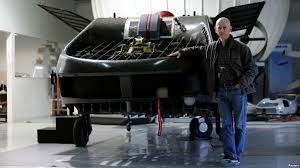
Breaking News
 Why Dual Engine Failure Changes Everything -- Louisville Crash Update
Why Dual Engine Failure Changes Everything -- Louisville Crash Update
 Transforming Storage Shelf / Workbench - Small Space Organization
Transforming Storage Shelf / Workbench - Small Space Organization
 Our 3-Step Strategy for a Stress-Free Pantry
Our 3-Step Strategy for a Stress-Free Pantry
 BEHIND THE DEEP STATE | The War on Farms
BEHIND THE DEEP STATE | The War on Farms
Top Tech News
 HUGE 32kWh LiFePO4 DIY Battery w/ 628Ah Cells! 90 Minute Build
HUGE 32kWh LiFePO4 DIY Battery w/ 628Ah Cells! 90 Minute Build
 What Has Bitcoin Become 17 Years After Satoshi Nakamoto Published The Whitepaper?
What Has Bitcoin Become 17 Years After Satoshi Nakamoto Published The Whitepaper?
 Japan just injected artificial blood into a human. No blood type needed. No refrigeration.
Japan just injected artificial blood into a human. No blood type needed. No refrigeration.
 The 6 Best LLM Tools To Run Models Locally
The 6 Best LLM Tools To Run Models Locally
 Testing My First Sodium-Ion Solar Battery
Testing My First Sodium-Ion Solar Battery
 A man once paralyzed from the waist down now stands on his own, not with machines or wires,...
A man once paralyzed from the waist down now stands on his own, not with machines or wires,...
 Review: Thumb-sized thermal camera turns your phone into a smart tool
Review: Thumb-sized thermal camera turns your phone into a smart tool
 Army To Bring Nuclear Microreactors To Its Bases By 2028
Army To Bring Nuclear Microreactors To Its Bases By 2028
 Nissan Says It's On Track For Solid-State Batteries That Double EV Range By 2028
Nissan Says It's On Track For Solid-State Batteries That Double EV Range By 2028
Israel's 'flying car' passenger drone moves closer to delivery

YAVNE, Israel (Reuters) - After 15 years of development, an Israeli tech firm is optimistic it will finally get its 1,500 kg (1.5 tonne) passenger carrying drone off the ground and into the market by 2020.
The Cormorant, billed as a flying car, is capable of transporting 500kg (around half a tonne) of weight and traveling at 185 km (115 miles) per hour. It completed its first automated solo flight over terrain in November. Its total price is estimated at $14 million.
Developers Urban Aeronautics believe the dark green drone, which uses internal rotors rather than helicopter propellers, could evacuate people from hostile environments and/or allow military forces safe access.
"Just imagine a dirty bomb in a city and chemical substance of something else and this vehicle can come in robotically, remotely piloted, come into a street and decontaminate an area," Urban Aeronautics founder and CEO Rafi Yoeli told Reuters.
Yoeli set up the company, based in a large hanger in Yavne, central Israel, in 2001 to create the drone, which he says is safer than a helicopter as it can fly in between buildings and below power lines without the risk of blade strikes.

 Carbon based computers that run on iron
Carbon based computers that run on iron

